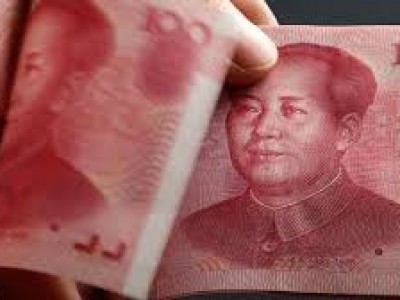
China’s foreign exchange reserves fell to their lowest level in nearly three years in November, official data showed Monday, with analysts blaming “record” capital outflow on expectations the yuan will depreciate.
The country’s foreign exchange stockpile, the world’s biggest, declined to $3.44 trillion last month, down $87.2 billion from October, according to figures released by the State Administration of Foreign Exchange (SAFE).
It was the lowest figure since February 2013’s $3.40 trillion and took the total reduction this year to $404.7 billion.
It was also below the median forecast of $3.49 trillion in a Bloomberg poll of economists.
The International Monetary Fund decided last week to include the yuan in its elite reserve currency basket, after a long campaign by Beijing.
But Julian Evans-Pritchard, an analyst with research firm Capital Economics, estimated China’s net capital outflows at a “record” $113 billion in November, spiking from $37 billion in October, including the central bank having to sell $57 billion to prop up the Chinese currency’s value.
“The pick-up in capital outflows appears to have been predominately driven by increased expectations for renminbi depreciation,” he wrote in a note, citing factors including risen likelihood of a US Fed rate hike this month.
Beijing keeps a grip on currency flows and the yuan can only move up or down against the US dollar by two percent from a mid-rate set daily by the central People’s Bank of China (PBoC).
The PBoC surprised the market in August by devaluing the yuan against the dollar by nearly five percent over one week.
China has pledged to move towards making the yuan fully convertible by 2020, but has not set an absolute target.
Central bank vice governor and SAFE head Yi Gang said last week that the government aims “in the long term” to reduce intervention in the currency markets as far as possible.
The country’s gold assets were valued at $59.5 billion, down from $63.3 billion in October, according to SAFE.
But Bloomberg estimates its hoard actually increased around 21 tonnes over the month, the most in at least five months, as prices saw their biggest drop in more than two years.



